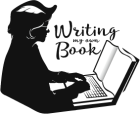Action is fuel to both fiction and non-fiction writing. It ignites your reader’s passion for your topic or story. Power writing depends upon using verbs to generate active engagement with your readers.
Inspire Imagination Using the Power of Verbs.
Many verbs show action, yet they pull little weight. They lack power. They are scrawny shadows of what you could accomplish if you chose the right verb. As many of the verbs you use should reveal something about the character’s emotions and reaction to the setting he or she finds himself or herself in. For example, consider the following.
I went under a spruce tree and lay down.
You spark imagination if you replace ‘went’ with a verb that creates a picture of how ‘I’ went.
I darted under a spruce tree and crouched.
Remember, you are creating the setting. You’re telling your reader something about the character. What does ‘darted’ tell you? ‘Crouched?’ If you’ve already told the reader that the character is frightened, these verbs tell you that the character is alert and watchful.![]() This content is for members only.
This content is for members only.
Avoid Weak Verbs.
The weakest verbs in the English language are based on TO BE. “To be or not to be” may be Shakespeare’s most famous line, but the ‘to be’ verb forms won’t earn you fame as a writer. You’ve seen them. Is, as, was, were, be, being, been, am, are. Anytime you use these verbs you should see a warning flag that you’ve slipped away from writing in an active, reader-gripping voice to a passive, boring voice. Have and its kin are equally weak. Has been, have been, had been should be avoided whenever possible.
Use Verbs That Show More Than Action.
Verbs can do more than show action. Your choice of verb can also show how that action is taken.
I got up and followed the path.
is better replaced with:
I sprang to my feet and trotted along the path.
Note that ‘sprang’ replaced a verb and direction adverb pairing and ‘trotted’ replaced a verb that did nothing to show the urgency felt by the character. Even though ‘sprang to my feet’ uses more words than ‘got up’ and ‘trotted along’ is two words (and along is a where adverb), it helps readers experience the character’s emotions. It creates an active setting.
‘He went back to the lake,’ or ‘She headed back to the lake,’ or ‘I returned to the lake,’
could become:
‘He strolled back to the lake,’ or ‘She sauntered back to the lake’ or ‘I hurried back to the lake.’
Your goal is to give insights into the emotion of your character, especially if you are using the third person objective viewpoint. (In this point of view (POV), you can’t read the character’s mind. You only guess what he or she is thinking by what is said and observed.) If the only way readers know what is going on in the character’s mind is from the observable facts, this use of verbs that show more than action is essential. Even when you are ‘in your character’s head, your verb choices heighten the impact of what the character is experiencing.![]() This content is for members only.
This content is for members only.

